Prince Caspian Was My Least Favorite Narnia Book… Now It’s #1 | Opinion
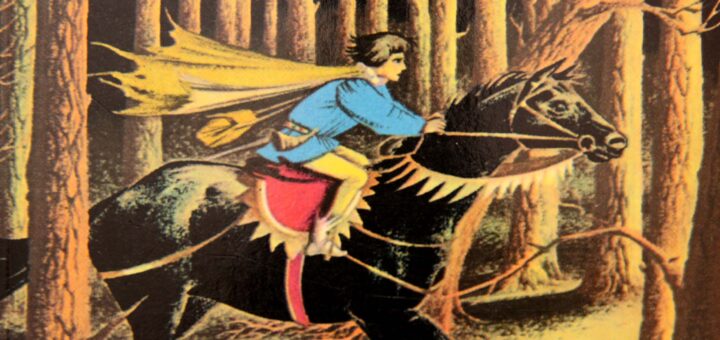
Polls frequently show that Prince Caspian is the least popular book among readers of C.S. Lewis’s Chronicles of Narnia series. The Rose-Tree Dryad shares her theory about why.
I’m one of the rare Narnians who considers Prince Caspian: The Return to Narnia to be her favorite Narnia book, but this wasn’t always the case. For most of my years as a Narnia fan, it was ranked last! What changed, and why is ranking Prince Caspian as the “worst” Narnia book so common?
If you poll readers about their favorite Narnia book, there’s one result that’s almost always constant: Prince Caspian is, on average, the least popular among fans. The two books that tend to rank above it are The Silver Chair and The Last Battle. The former is a journey into severe, remote places and psychological darkness. The latter is an unsettling tale of Narnia’s apocalypse, despite the radiant beauty of its ending. Both of these stories are perhaps the most grim and serious of The Chronicles of Narnia, and yet Prince Caspian, with its tale of Narnia’s liberation and all of the revelry that comes with it, consistently takes the crown for least favorite.
It was my least favorite, too, until about five years ago.
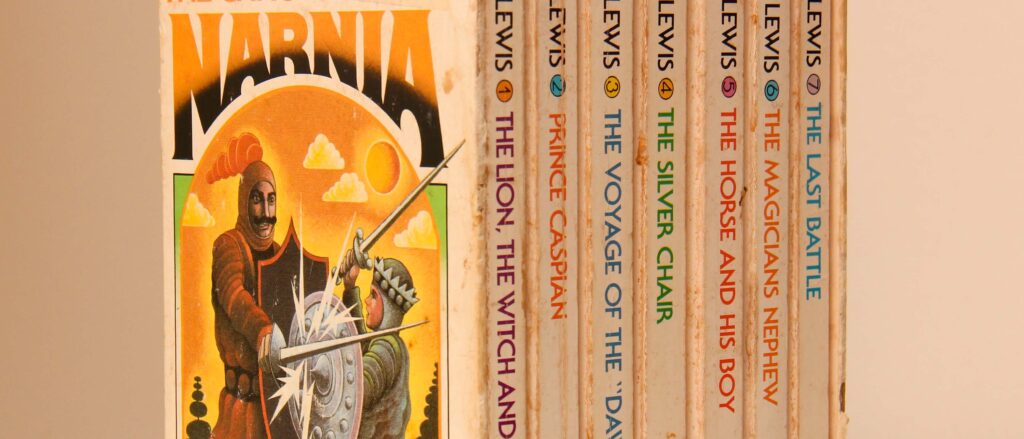
I was on my umpteenth re-read of the series, and I was trying to nail down my favorite Narnia book once and for all. This had always been a challenge for me, and I found that the only way I was able to approach this question was by asking myself which book had the most story elements that captured my imagination, the most scenes that emotionally resonated with me… to put it plainly, which book had the most Stuff That I Like.
Once I came at the question from this angle, it was quite obvious to me that the answer was Prince Caspian. Suddenly the reasons why I had ranked it last just weren’t that important to me anymore; in fact, some of the things that I thought were weaknesses were actually aspects that I now enjoyed.
But what were the reasons why I placed it at the bottom of my ranking for so many years, and why did they cloud all of the things in it that I liked?
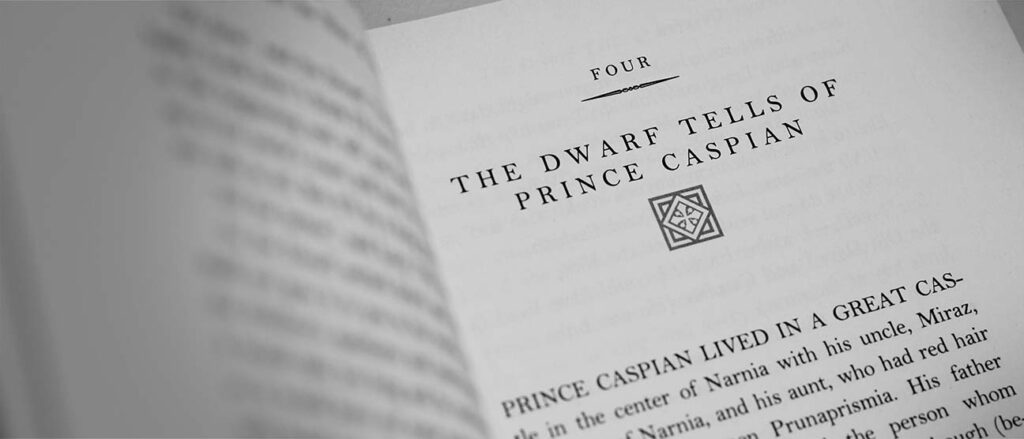
“I think I’ll have to go right back to the beginning… But it’ll be a long story.”
Trumpkin
First of all, the structure of the story is quite unique, and it was something that I found very jarring the first few times I read it.
Three chapters into Prince Caspian, we embark on a lengthy flashback that spans four chapters before returning to the Pevensies and their quest to escape the island. During the flashback, we meet and grow attached to young Caspian who we will not meet again until chapter twelve. Most stories, especially stories for children, follow a linear plot; this device of hopping backward and forward in time, and alternating between casts of characters, can be unsettling even for adult readers.
C.S. Lewis may have been hearkening back to an earlier time when storybooks were less formulaic — Phantastes, the George MacDonald novel that Lewis said changed his life at the age of sixteen, has a short story tucked into the middle of the book that is nearly as long as Caspian’s adventures — but this style of storytelling is not common today, and young readers are generally not familiar with it.
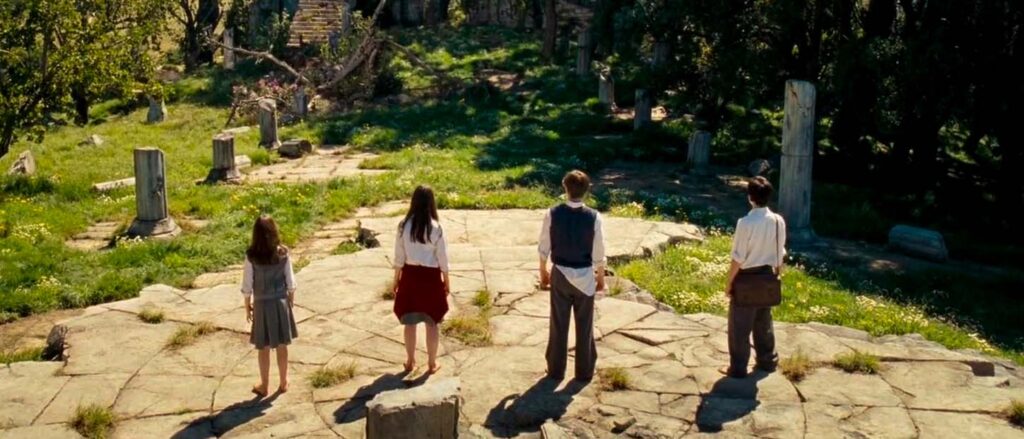
“It is hard for you, little one. But things never happen the same way twice. ”
Aslan
Beyond the unusual structure, the story itself often upends expectations. The Pevensies are shocked to discover that 1,300 years have passed in Narnia, all of their old friends are gone, Cair Paravel is in ruins, and a dull and cruel kingdom has taken over the country — and this is just the premise.
In the previous book, the Pevensies quickly find a good guide in Mr. Beaver who recognizes that they will fulfill the prophecy, tells them that Aslan is on the move in Narnia, and takes them to Aslan’s Camp. In Prince Caspian, they meet Trumpkin who at first does not believe that they are the Kings and Queens of Old, and still does not believe in Aslan even after he accepts the Pevensies’ royal identity.
Their journey to Aslan’s Howe is rife with conflict and frustration, with the Pevensies at odds with one another until Aslan’s help and Lucy’s courage ultimately saves them. The characters are no longer carried along by the plot; it is up to them to make the right choice, and it’s messy. Evil isn’t as simple, or as singular, as before: by turns, Nikabrik, Miraz, Sopespian, Glozelle, and even Susan Pevensie all play the villain. Even the happy ending catches you by surprise at every step of the way: Aslan’s Romp and Narnia’s renewal can only be described as beautiful chaos.
Prince Caspian is just more complicated and less predictable. This doesn’t make it a worse story, but it does make it a harder sell on the first reading. That’s why I think it consistently ranks in last place for a majority of readers, and why, years after I initially ranked it at the bottom, it was able to vault to first place for me. And I think science might back this up.
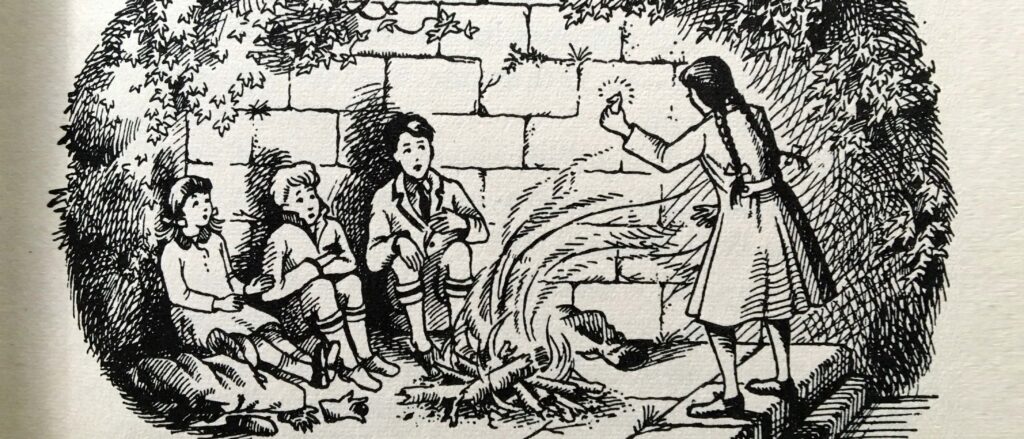
Then, of course, they began walking about and picking things up to look at. It was like meeting very old friends.
Chapter Two: The Ancient Treasure House
Books aren’t that different from music in a lot of ways, and research has indicated that humans prefer music of intermediate complexity or predictability. We like songs that are complex enough to spark our interest, but not so complex that they’re unpleasantly surprising. Music with the right balance of predictable and unpredictable is the most agreeable to our ears.
Further, studies have shown that we enjoy music more when we have listened to it multiple times, regardless of the complexity of the song. Familiarity can make the difference between a song that we like and a song that we don’t.
Maybe you have a favorite band release a new album that sounds really different from their old music and you don’t like it at first, but you find that it really grows on you after a few listens. Your brain has had time to process the music and the band’s new style doesn’t sound as unpredictable to you anymore. Or you’re exploring a new genre of music and you’re completely mystified that people like it, only to find yourself jamming to it later on — the effects of familiarity on music may be the cause of that. And if you’ve ever ranked a book in last place for years only to discover, after the fifth or sixth re-reading, that it’s actually your favorite in the series… well, maybe something similar is going on?
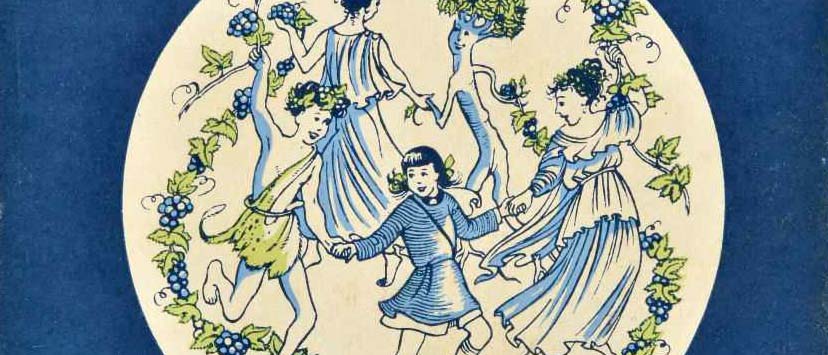
“And now all Narnia will be renewed.”
Aslan
It’s just a theory and I’m not trying to say that you, too, will find that Prince Caspian is actually your favorite Narnia book if you just re-read it enough times. However, I do think these studies about music might provide a clue about why so many people rank this book at the bottom. I think it also might explain why my feelings about the story suddenly shifted so much after so many years: the subversive plot elements and story structure that I once found so jarring weren’t a problem anymore, and I was able to enjoy Prince Caspian for what it is because I knew what to expect… which is a story that is adventurous, fun, mysterious, wondrous, and inspiring.
What’s your theory? Do you think Prince Caspian gets better with each re-read? How did you decide on your favorite Narnia book? Share your thoughts in the comments below.
The Rose-Tree Dryad is a news poster, web designer, and forum moderator at NarniaWeb. She joined in 2010.

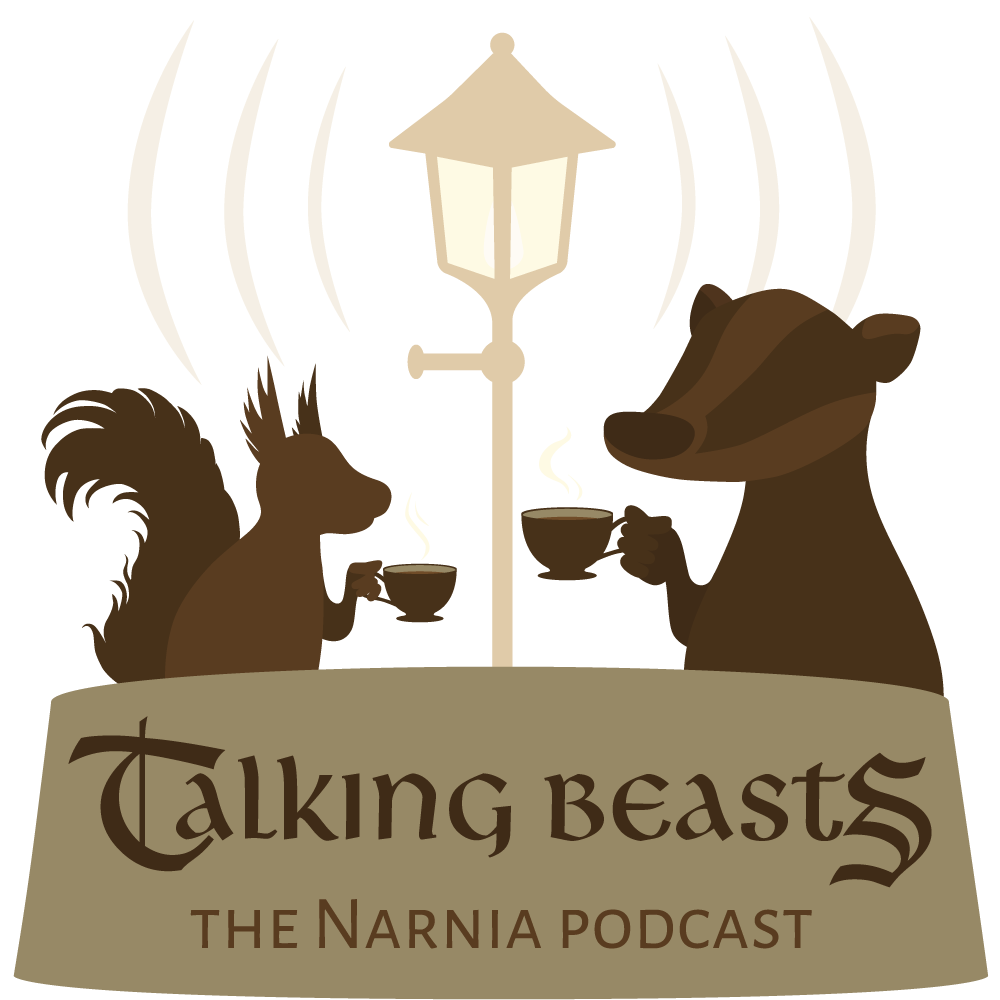
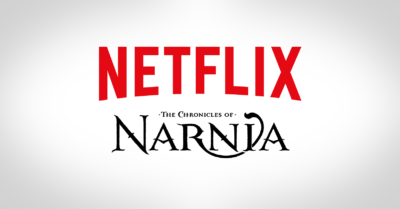
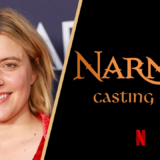
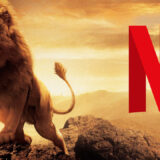

I too rated Prince Caspian as my least favorite. To be honest I watched the movies first and then found out there was a book series. The movie was better in my opinion because of its great action scenes and how creative it was with the new parts of it. The book however (since I watched the movie first that is) was a bit dull to me. Don’t get me wrong, I know everything about it and it’s great but in the movie how Peter had a sort of feud with Caspian and in the book Peter liking Caspian. I think the book version was too predictable if you will.
My favourite book however, would be The Silver Chair or The Voyage of The Dawn Treader. I chose those two because in the Voyage of The Dawn Treader they introduced Eustace and really worked on him a lot and how he was sceptic and then became a believer. That resembles being born again in the Christian analogy I suppose. And in The Silver Chair how Eustace (being Born Again) changed his ways and tried to comfort Jill Pole and eventually going on an epic quest alongside Glumpuddle to rescue Rilian .
Now that’s a great story if you ask me.
That’s interesting that you think the reason people don’t like the book as much is because it’s different and disorienting. In my experience, people tend to criticize it for being too much like LWW. I’d like to stress while I have criticisms of the book, that aspect of it doesn’t really bother me. I guess it’s unimaginative if you compare it the other Chronicles of Narnia. But I think the parts that are twists on the last book tend to be the most interesting parts.
In fact…I’m going to be controversial and say I think some of them are better than their LWW counterparts although I wouldn’t say they make the book better than that one on the whole. The subplot about Lucy seeing something that no one else sees is more complex. There’s a greater range of reactions from the other characters (though there’s a pretty good range in LWW too) and it’s interesting that Lucy gets a character arc of her own. And I honestly enjoy the climax of Aslan breaking the “spell” over Narnia more. The one in LWW may be more emotional in context, but I find myself wanting to read the one in PC by itself sometimes because it’s just so fun (for me.)
That’s an interesting comparison (new music from a favourite band and PC). My experience was like that for the entire series past LWW. I was used to book series following a set cast of characters and often following a familiar formula. For example, I was reading A Series of Unfortunate Events around the same time I first got into Narnia and each book in that series not only stars the Baudelaire orphans, but usually follows a familiar structure.
Narnia initially gave me whiplash because each book was so different and the main cast of characters was a revolving door. And at first I didn’t like it. I distinctly remember being about 12 or so and thinking of myself as a fan of LWW, but not The Chronicles of Narnia. And I do remember having that disconnect with PC because of the time jump.
Many years after getting acclimatized to the series, I would place PC at the #3 spot after VDT and SC. Though not my favourite overall, the four chapter flashback of Trumpkin telling Caspian’s backstory is my favourite piece of writing in all of the Chronicles (and probably all of literature!). It reaches a very deep part of me and it gives me the chills just thinking about it.
The problem with the awkward structure is not just that its jarring, it’s that it adds confusion as to who the focus of the narrative is and what story is actually about.
I think you can see that this is something the Walden screenwriters really struggled with – trying to pin down what the overall point of the story should be, and what it’s unifying theme is.
I think if the book were told purely as a story about Caspian discovering the wider world of Narnia for the first time (similar to HHB) you would clear say that it is a story about Caspian and his journey, and that to some extent the story becomes a mirror image of LWW (i.e. the Pevensies have become the mythical fantasy beings that Caspian is told stories about).
Equally, you could ditch Caspian’s plot and just make it a story about the Pevensies rediscovering a world that had been lost to time, and all the deeper meanings of growing-up that entails.
As it is though, the book tries to do both, but ends up being about neither. I think therefore why its a bit of a struggle to pick out a single unifying theme for Prince Caspian as a story.
I never found myself disliking Prince Caspian, but it was never my favorite either. Although Prince Caspian did have an adventurous plot, it seemed very messy. As you mentioned, the story lines went back and forth between Caspian and the Pevensies, until they met of course. However I do find myself liking all of the Narnia books more as I read them. For Prince Caspian, now that I’ve read it more, I find the plot definitely more appealing and suspenseful. The characters seem more in depth, especially, Lucy. Though, I must disagree how you said that Susan is shown as a potential villain. I don’t think that Susan Pevensie is depicted as a villain in Prince Caspian, although she has less faith. She doesn’t necessarily try to stop them from achieving their goal and Peter, as most forget, is losing faith as well. I think C.S Lewis was just trying to show how they are growing up more.
Prince Caspian never was my favorite but I do think that it does get better after each read. It might be my favorite plot of all the books and I love the theme of the Old Days coming back. The scene of Caspian and Cornelius is one of my favorite scenes in the whole Narnia series. But the reason I always rank it so low, is that the pacing is a bit slow and it is a shame that Caspian himself is not in it much. I never could quite pin down that felt not as good to me as the other books when I think maybe Glumpuddle hit the nail on the head for me when he said that the Narrator does not have as much to say here as in the other Chronicles. I think it takes me out a bit as you jump from the Pevensies to Caspian to the Pevensies again. I think that story is fascinating that it shot up from least favorite to favorite.
It’s an interesting circumstance for a lot of readers I imagine. Even while I still love the imagery and atmosphere of the story, I can’t help but think that there’s not much to the plot itself. The kids just kind of show up and solve everything. Yes, they have a few struggles, but there are no major setbacks (other than getting lost in the woods) and no point of absolute crisis- all the real conflict is in the past, not much more than a prologue. Peter fights Miraz, the girls go with Aslan to fetch the reinforcements, and the story is over. It’s true that it’s often compared to LWW, but the stakes are even lower; there is no crisis in PC as dire as when Edmund is about to be killed by the White Witch.
Even though I love the atmosphere (as usual, cause it’s Narnia) and the themes of Old Narnia Renewed and all that, the progression of the story has never been that exciting for me compared to the other books.
Some parts of the book I liked better than others. I liked the way the children entered Narnia from the railway station and returned at the end of the story. It was kind of nice in an old fashioned way. The dwarf Trumpkin’s retelling of the story of the previous events was a bit long and tedious. The flashback didn’t work so well for me. It was kind of intriguing when the children found the ruins of Cair Paravel. It helped to give the book some mystery. Lucy’s meeting Aslan at the Dancing Lawn was perhaps the most beautiful part of the book. I liked the adventure, but it was mostly parts of the story which held my interest more than the book as a whole. I wouldn’t say Prince Caspian was my favorite, but I remember that it was quite enjoyable. 🙂
I’m gonna be honest, Prince Caspian is still my least favorite book. The lack of focus and pacing of it really bother me. However, it does have its positives, and it’s nice to see that someone at least gets enjoyment from it.
I’m not sure I’ve forgiven that book for saying that all of the beavers in Narnia had been killed off long ago!
I think Prince Caspian is much more enjoyable if you look at it as ”the lion the witch and the wardrobe – part 2.” So much of the story evolves around the characters talking, remembering or debating the events of LWW and this is truly fascinating to read. As Lewis says in the book, the children returning to Narnia after hundreds of years is what it would be like if King Arthur came back to Britain in modern times, and we see this through both the eyes of the Narnians and the children themselves. The complexity of what different people believe is amazing, some Narnians who are in hiding themselves and don’t even believe in Aslan and the four children, some are totally faithful and some are even hoping for a return of Jadis. I loved the chapter with the hag and the werewolf in the book, it’s probably one of my favourite Narnia chapters ever!
The jarring structure of the novel would actually lend itself to a episodic tv series really well. We could spend one episode from the point of view of the children gradually discovering they are back in a startling different Narnia, then once they meet Trumpkin, the next episode could focus entirely on Caspian’s story.
One way that I found Prince Caspian more compelling is if you enter it with the mindset that Prince Caspian is not only the titular character, he’s actually the main character. If you read from Chapters 4-7, then 1-3, and then 8 to the end, he’s the one on the hero’s journey. His path to the throne with the help of heroes from another world mirrors that of the Pevensies in the first book.
While the time jump is jarring, it really helps establish the Pevensies as phenomenal rulers who are still regarded as legendary by the Old Narnians in hiding.
Magician’s Nephew was always my least favorite. In the original (correct) reading order it came next to last. It is the one least consistent with the rest of the stories. While it has some interesting elements like the creation and some background on other characters, it just never met the standard I felt the other Narnia books attained.
I always enjoyed PC. Trumpkin’s relationship with the children, the return to faith in Aslan, Aslan’s romp all were great story telling.
I’d say that The Lion, the Witch and the Wardrobe is the least consistent with the other stories. (It portrays humans as being foreign to Narnia when other books say humans have always been the rulers. It portrays the animals, including Aslan, as being more anthropomorphic than in the other books. It portrays Aslan as less all knowing than the other books.) People just don’t give it flack for these inconsistencies because it’s the first in the series.